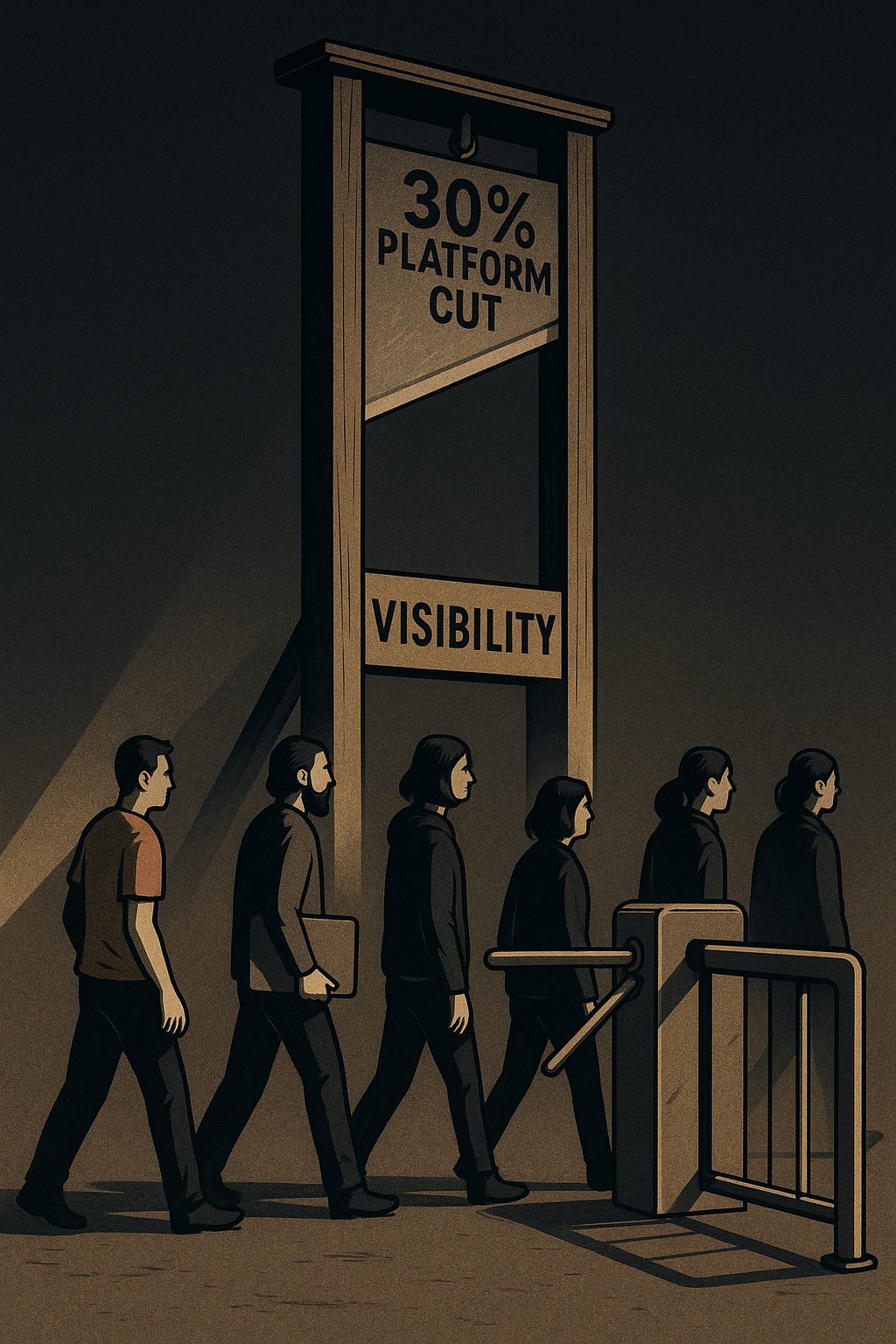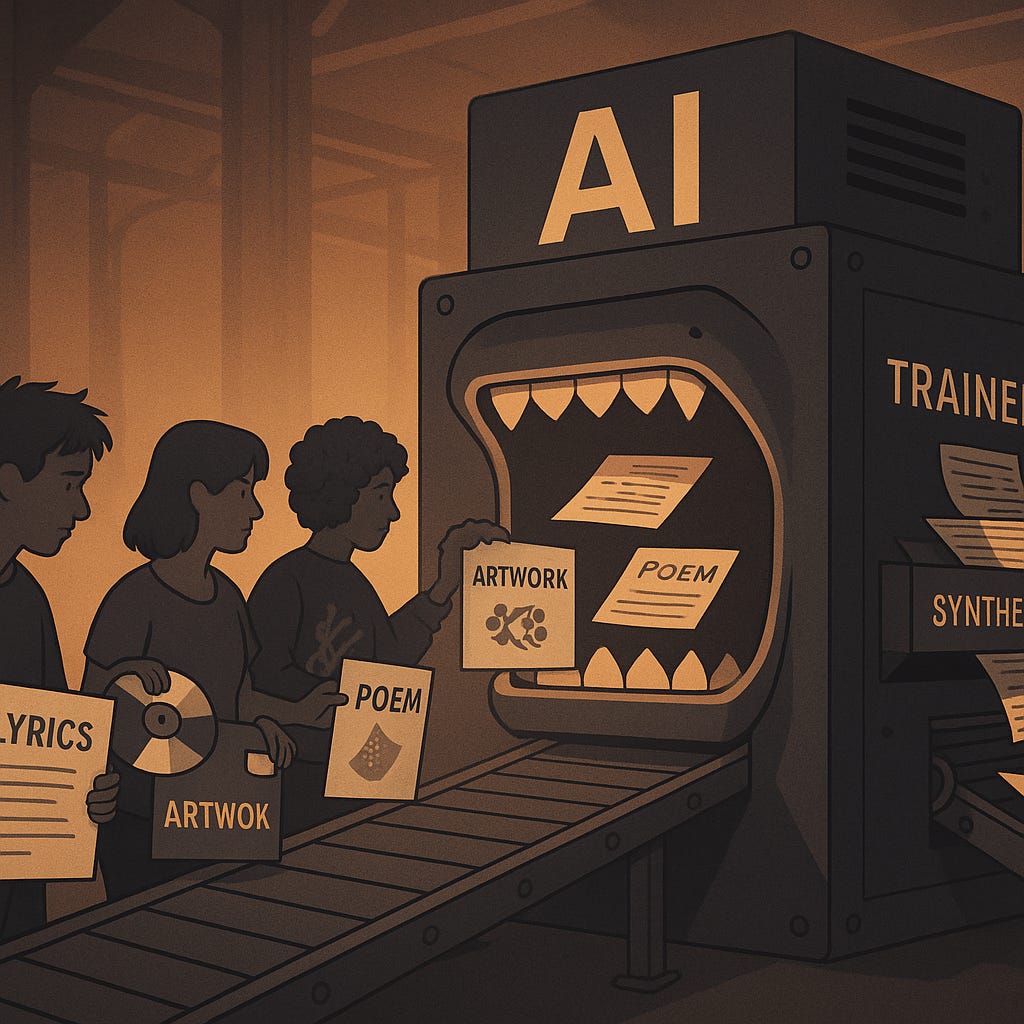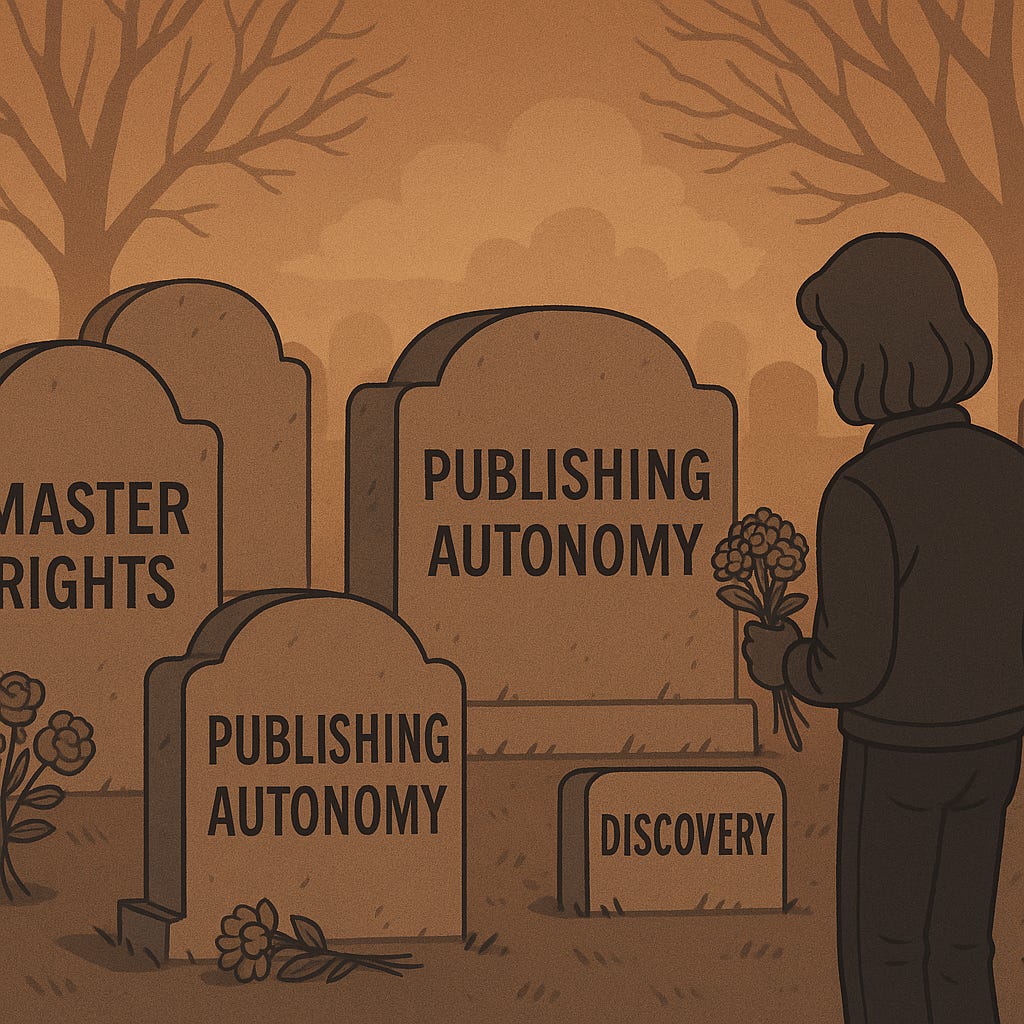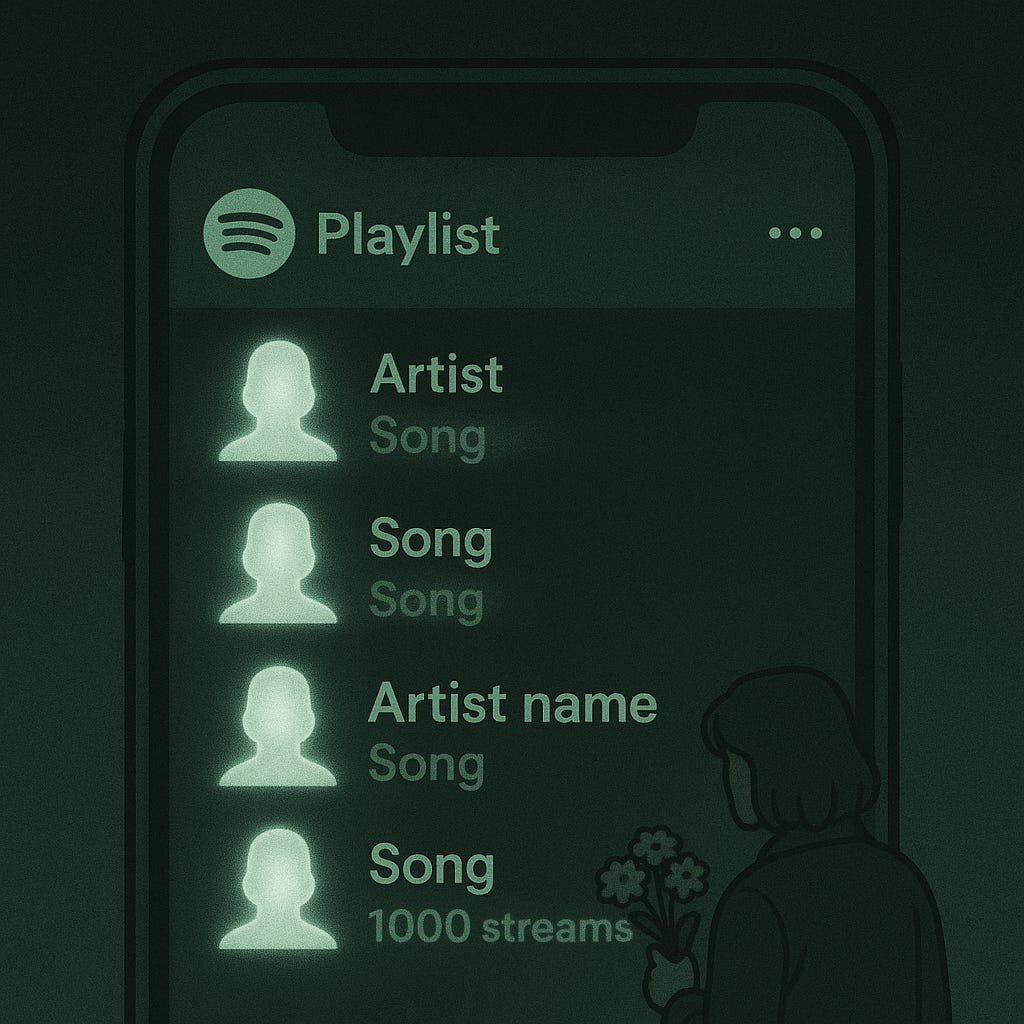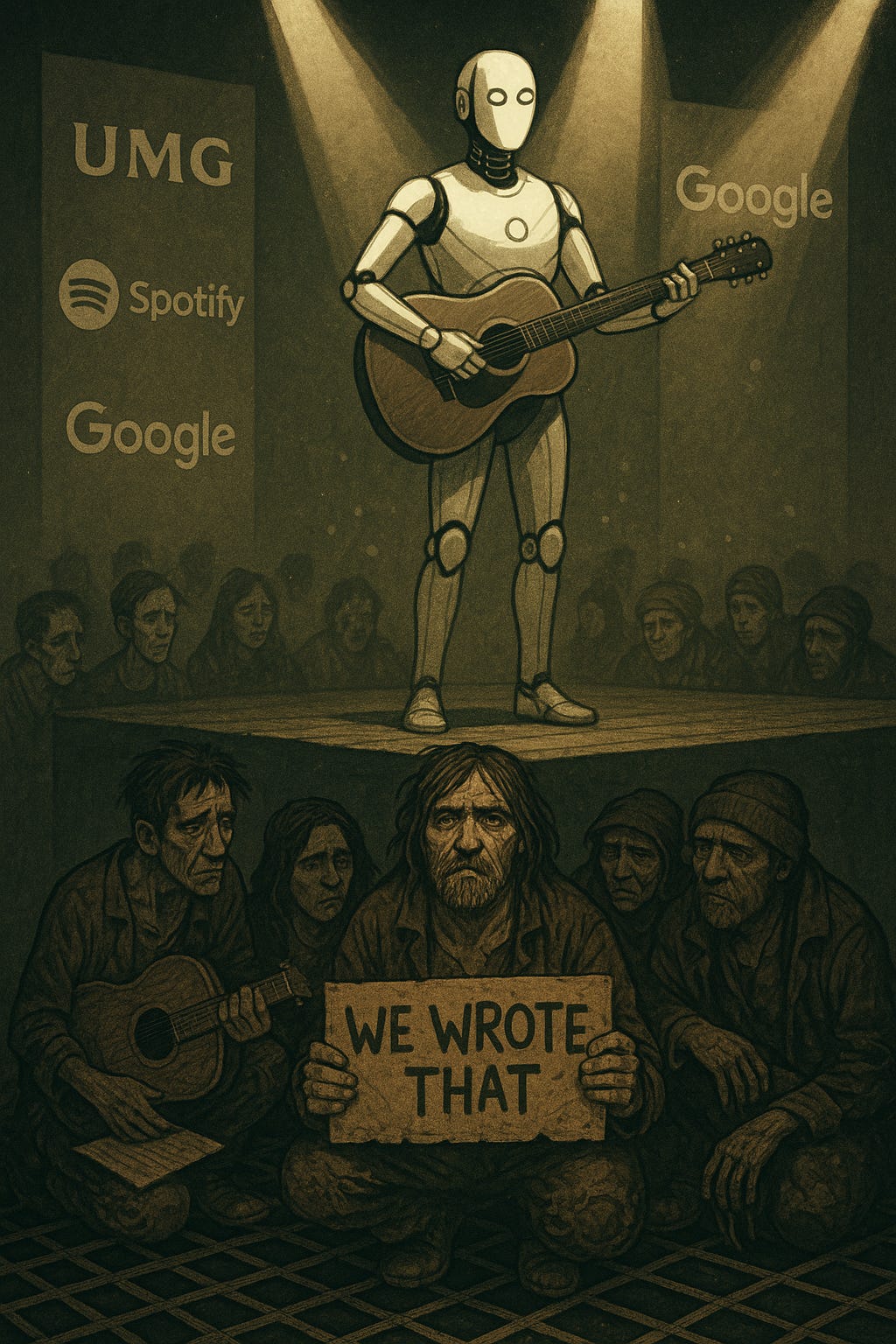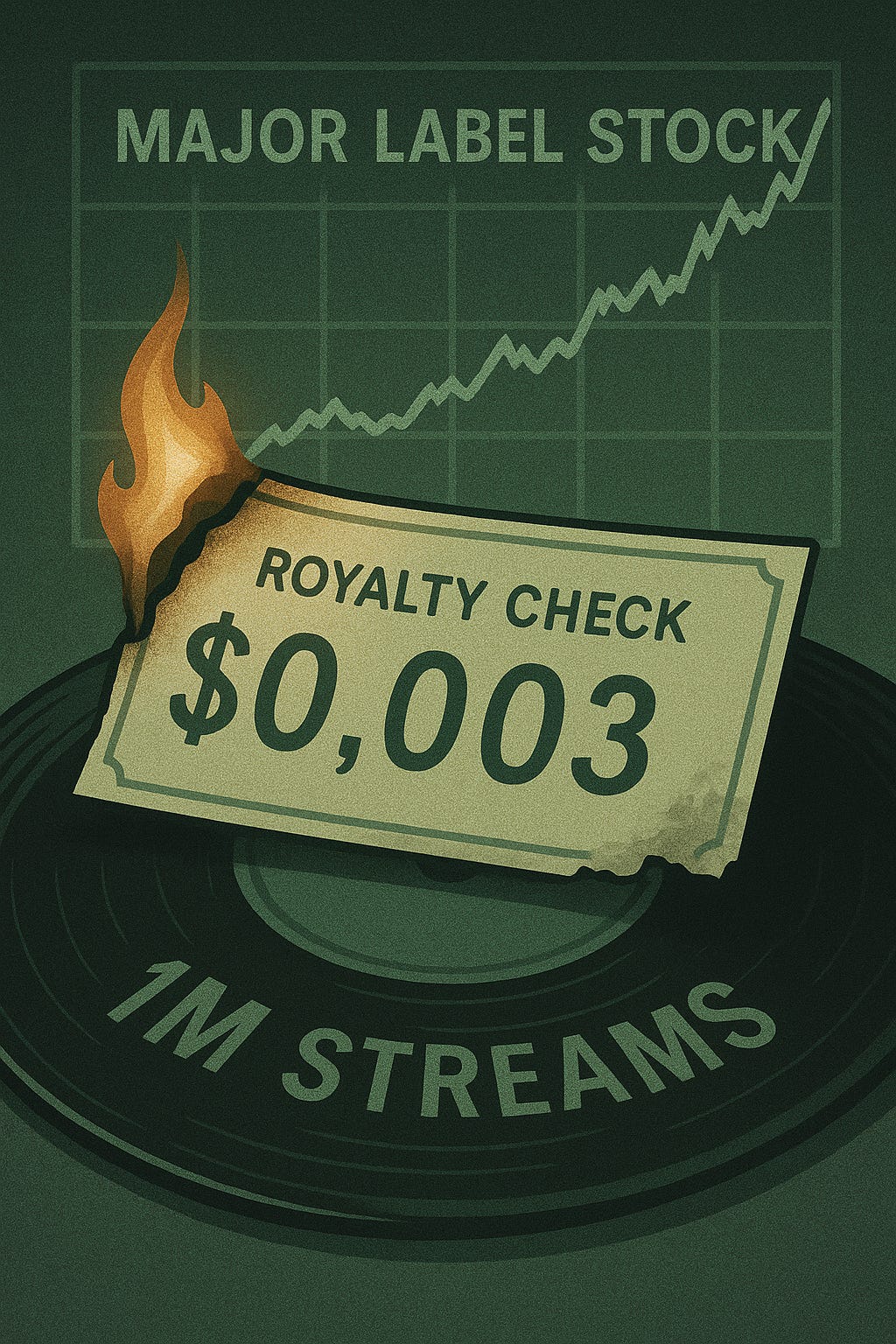The Same Playbook, New Console: How $600 Billion Was Extracted from Indie Game-Makers—and Why AI Creators Are Next
From Steam to Spotify to ChatGPT—how corporations perfected creator exploitation, and why the AI era could be the most dangerous yet.
The 20-Year Cheat Code
The video game industry didn’t just innovate—it inherited the music industry's exploitation model. From 2004 to 2024, storefronts like Steam, PlayStation Network, and Xbox Live charged developers a 30% "store tax" on every sale. Then came microtransactions, live-service economies, and paid visibility boosts. The total wealth siphoned from independent studios now exceeds $600 billion.
Today, AI platforms are replicating this playbook. Except instead of taxing downloads, they're feeding on the world’s intellectual property—music, art, writing—without consent or compensation, while chasing $100 billion valuations.
How the Platform Scam Works
Step 1: Own the Gate
In gaming, if you're not on Steam, PlayStation, or Xbox, you don't exist.
In music, if you're not in Spotify's curated playlists, your song may as well not exist.
In AI, if your work trains the model, you never know—until it outputs a clone.
Even physical ownership is being erased. Games are increasingly digital-only, and in music, Apple users found themselves losing access to purchased tracks and videos, despite owning a license.
Step 2: Hide the Data
Artists can't access lifetime metrics.
Devs can't verify purchase volumes.
AI creators can’t see what their work was used to train.
Step 3: Tax the Sale
30% off the top, even for refunds.
DLC, skins, plugins—all taxed.
AI API access marked up 10x+ over compute costs.
DSPs and PROs also delay payments, holding artist funds for weeks or months to collect interest, even though payouts could be done instantly. This float generates profit for the platforms while starving creators of timely revenue.
Step 4: Sell Visibility
Steam "featuring" is paid.
Spotify "Discovery Mode" trades royalties for reach.
AI search ranking is already being auctioned.
Kevin Liles Saw It Coming
In his book Make It Happen, former Def Jam exec Kevin Liles wrote that the major labels were early to gaming. The 2003 Def Jam-EA deal was no accident. "Ninety percent of the [rap] artists, athletes and entertainers are gamers," he said. Translation? They knew where the next cash cow was. And they positioned themselves to profit while independents lagged behind.
Total Damage Report (2010–2025)
An Evidence-Based Analysis of Extracted Wealth Across the Creator Economy
Video Games (2014–2024): $600B+ in Extracted Indie Value
Total Revenue:
$150B/year × 10 years = $1.5 trillion
Platform Cuts (~30%):
$450B skimmed by Steam, PlayStation, Xbox, App Store, etc., via distribution fees baked into storefront monopolies.
Microtransactions & DLC Exploitation:
$150B+ diverted through loot boxes, pay-to-win economies, and cosmetic markups—independent devs are rarely cut in beyond initial licensing or asset submission.
Convention Access, Discount Blackmail, Labor Losses:
Over $50B in forced marketing costs (PAX, GDC booths), launch-week discounting (up to 90% on Steam), and unpaid crunch-time labor that would violate wage laws in any other sector.
These figures mirror the Live Nation model of vertical integration and fee stacking: every step of distribution, performance, or engagement carries a toll gate not built by the artist.
Music Streaming (2010–2024): $100B+ Shortfall for Independent Artists
Total Industry Revenue:
~$180B across all DSPs (Spotify, Apple, Amazon).
60% Controlled by Majors & Platforms:
Roughly $108B redirected to Universal, Sony, Warner, and platform operators via:
Pro-rata payout systems (penalizing indie volume)
Algorithmic bias toward major-label catalogs
Practices like Spotify’s “Discovery Mode,” which trades royalty rates for playlist access
Transparency Barriers:
Spotify limits artist data to 1–2 years, preventing long-term trend analysis or legal discovery for suppressed payouts.
This structure constitutes a violation of antitrust law, consumer protection statutes, and Fifth Amendment takings principles—as formally alleged by Joseph Anthony Reyna, acting in his capacity as founder of JoeCat LLC and the Dreams Over Dollars™ Foundation (501(c)(3)), in a forthcoming federal action titled Reyna v. UMG et al, and further substantiated by multiple legal briefs and regulatory disclosures now preserved in the public evidentiary record.
AI Training & Generative Content Economy (2024–2030): Projected $500B+ in Uncompensated IP
Projected Revenue:
$160B/year × 6 years = $960B (conservative model from current AI SaaS trends)
Creator Share under Current Conditions:
~30% (text, image, music)—if compensated at all
Estimated Loss to IP Owners:
$500B+ in unpaid value extracted from datasets used to train models like ChatGPT, Midjourney, and Sora—without contracts, consent, or audit trails.
Like the compulsory licensing system for music, AI systems force creators into backend invisibility, often through scraped content that bypasses both attribution and pay.
What Needs to Happen
Algorithmic Audit Rights
Platforms must disclose if visibility is bought, influenced, or weighted—and how.Open Store Mandates
End the 30% cut. Let artists and developers control their checkout pipelines, just like the EU’s Digital Markets Act has mandated for Apple and Google.AI Royalty Infrastructure
Every training dataset should include transparent metadata, opt-outs, and smart-contract based payouts when content is reused or remixed.Cross-Sector Creator Unions
Artists, developers, and designers must unite—not just across genres, but across platforms and industries. The same hedge funds back Spotify, Steam, and AI labs. Our defense must be collective.
Final Word: This Isn’t Reform. It’s a Requiem.
Six months ago, I warned the Department of Justice: music would devolve into gimmick content and AI-generated noise unless the industry structure changed. That warning was treated as speculative. It’s now documentary.
What you're witnessing isn’t innovation. It’s collapse.
Major labels and streaming platforms have spent over a decade perfecting the illusion of growth while quietly siphoning the meaning, rights, and autonomy out of the creative economy. UMG and Spotify are not in competition with Suno and AI—they are co-architects of a future where authorship is irrelevant and compliance is the cost of visibility.
Washington’s 1¢ per stream proposal pretends to dignify labor. In reality, it’s the minimum concession required to prevent full-scale revolt. A decimal point adjustment to a structurally corrupt model does not correct theft. It memorializes it.
Why This Law Is Not Enough—and Never Could Be
1. It Assumes the System Itself Is Legitimate
Setting a fixed per-stream rate implies the current model is structurally sound. It is not. Streaming is not a neutral distribution system—it is a coercive, surveillance-driven funnel built on asymmetry, non-consensual data use, and algorithmic gatekeeping.
There is no fair rate for a rigged game.
2. It Rewards the Thieves First
Even at $0.01 per stream, the major labels take the first and largest cut. They will simply reframe the margin elsewhere—through creative accounting, clawbacks, or controlled access. The law cannot dictate where the money ends up. Only who pretends to earn it.
3. It Ignores the Retroactive Damage
Ten years of metadata fraud. Misattributed royalties. Black-box playlists that suffocated discovery. AI training sets scraped without license or attribution.
A fair law must begin with restitution. This one begins at zero, as if the past never happened.
There is no reconciliation without record correction. The absence of that demand tells you everything about whose interests are still being served.
4. It Centers Platforms, Not People
By focusing on platform output instead of artist input, the law reinforces the idea that value is measured only at the point of playback—never at the point of creation. It encodes a future where creativity is no longer owned, just streamed, licensed, bundled, or trained against.
This is not labor reform. It’s containment.
What Labels and Investors Need to Understand
You are not mediators of culture. You are middlemen of theft.
This law is not protection—it’s paperwork designed to delay your reckoning.
Every year you spent downplaying artist complaints is now a liability. Every suppressed royalty, every lost login, every vanished stat—those are damages in waiting. Your catalogs are collateral for unpaid debts. Your shareholder reports are built on coerced silence and unaudited ledgers.
And if you're banking on “AI partnerships” or “Streaming 2.0” to rebrand yourselves as visionary—you’ve misread the moment entirely. The public sees through it. The courts soon will.
You are not leading a transition. You are accelerating a collapse.
The Only Path Forward Is Structural, Not Symbolic
Restitution before regulation: Pay what’s owed, not what’s convenient.
Consent codified: No data scraping, remixing, or training without explicit opt-in.
Public audit infrastructure: Black-box accounting must end.
Royalty transparency by statute: Per-play earnings visible to creators in real time.
Artist rights as labor rights: Withhold platform access until this becomes law.
Anything less is not progress—it’s just packaging.
I’ve sent the FOIAs. You’d be surprised what doesn’t come back. Or who doesn’t appear—despite billions in exposure. The archive says enough.
When This Enters Court
This won’t be introduced as rhetoric. It will be entered as foundation—
For valuation.
For damages.
For precedent.
Every dollar unaccounted for is not theoretical—it’s stolen labor.
Every euphemism is a confession dressed in buzzwords.
"User engagement."
"Discovery Mode is optional."
"That's just how the algorithm works."
"We’re exploring new models."
"Artists can always opt out."
"We have no control over third-party uploads."
"This was a metadata error."
"Our legal team is reviewing it."
"This isn’t personal—it’s policy."
Each excuse is now timestamped.
Each delay is now an admission.
Each silence is now constructive knowledge.
While they circled in meetings, redlined apologies, gamed PR cycles—
this could’ve been resolved months ago.
Instead, they chose to gamble with history.
Now it’s entering the record.
And when the court asks why the demand is billions—
this is why.
Not just the fraud.
The laundering of responsibility.
The bureaucracy of avoidance.
The corporate theater of pretending not to know.
This document doesn’t seek sympathy.
It forces accounting.





